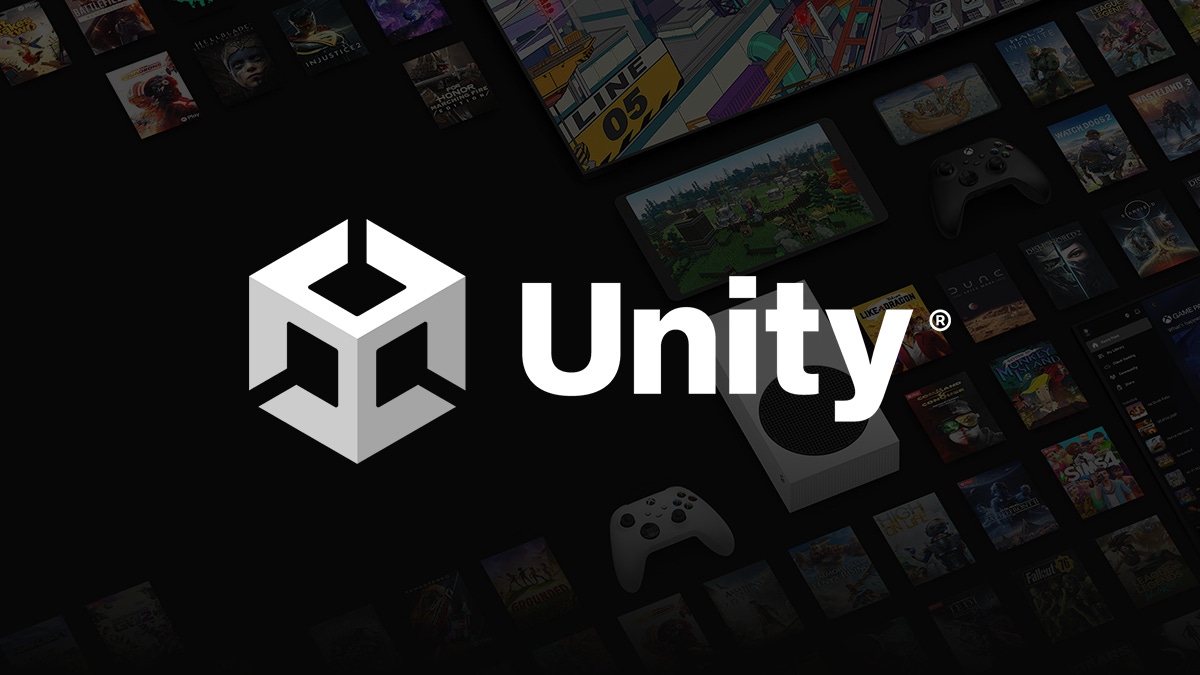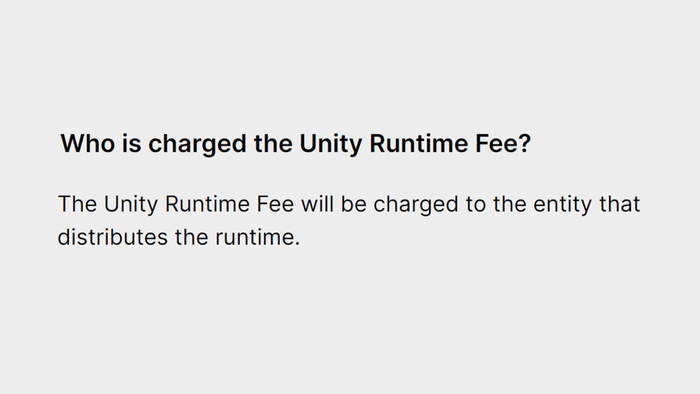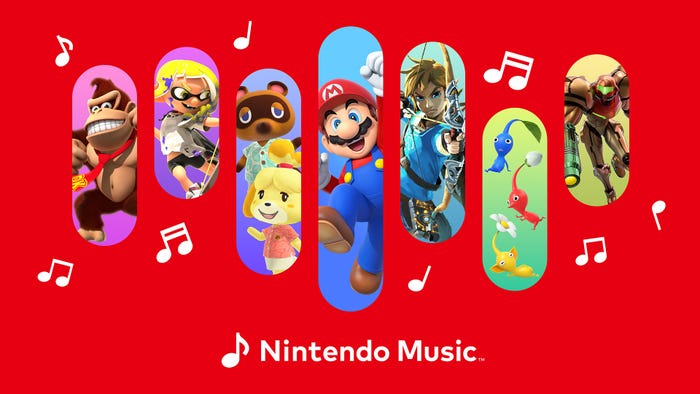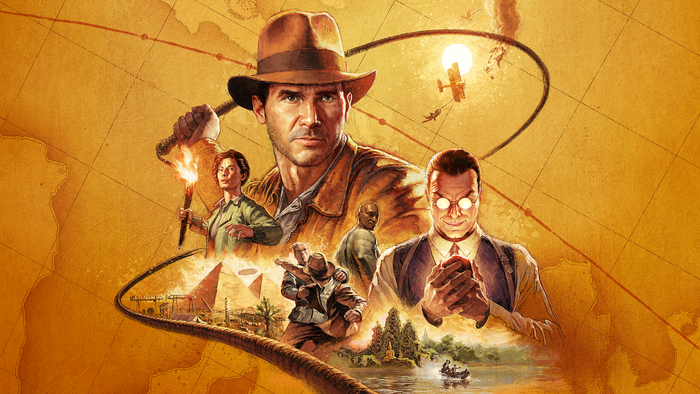
Last week, Unity rolled out a new look version of its controversial Runtime Fee in the wake of a seismic backlash from developers who felt the original policy represented an egregious act of betrayal for a myriad of reasons.
While plenty of fury was aimed at how the fee might impact developers' finances, some of that anger stemmed from Unity's inability to effectively communicate its new policy and provide clear answers to pertinent questions.
The dust is now supposedly settled, but here's one more thing: why doesn't Unity's explanation for its shifting answers about the Runtime Fee in relation to subscription services hold up to scrutiny?
One of the most frequently asked questions from developers concerned who would be on the hook for Runtime Fees incurred by titles on services like Xbox Game Pass and PlayStation Plus.
Initially, Unity indicated that developers would be responsible for those fees. That set off alarm bells, with some developers suggesting that finding success on Game Pass and similar services under the terms of the original policy might actually harm their business.
To quell those fears, Unity Create president Marc Whitten told Axios that distributors like Xbox and Sony, and not developers themselves, would pay fees incurred from subscription services.
At that stage, it was unclear if Microsoft and Sony had actually told Unity they'd be happy to foot the bill. Game Developer has since reached out to all of those companies in a bid to clarify what happened, but has yet to hear back.
Who pays the Runtime Fee on Xbox Game Pass or PlayStation Plus?
Curiously, when Game Developer spoke to Whitten to discuss the reworked Runtime Fee following its reveal, the Unity Create president said that he actually "misspoke" during that interview with Axios.
"I misspoke when I said that. That was not my intent—to be clear, it was not actually in the policy. I did misspeak in an interview," he stated, suggested that charging major platform holders was never actually part of the plan.
Then, in a fireside chat hosted on YouTube shortly after our interview with Whitten, the exec seemed to dodge the Xbox Game Pass question entirely. Here's how that exchange played out:
Interviewer (Jason Weimann): This is a question that I think has come up a lot and I really don't know the answer to it and don't understand the solution for it. Who pays the Runtime Fee or rev share when your game is on Microsoft's Game Pass? How does that actually work? Did Microsoft say 'yeah, we're good with it?' Can you talk a little bit about what's going on there?
Whitten: Yeah, well this program is associated with our licenses for our developers and the publishers that are publishing those particular games, so that's where it is. But, by the way, that was actually one of the most key pieces of feedback that we got over the last week was 'there's so many different distribution channels where people are putting their games and the rules are different on all of those, and on some of those it might be hard to track something like engagements, and so that's why there are things like choice for revenue share or engagements. It's also why there aren't 100 percent perfect details on exactly how you'd count all of those.
Despite those assertions and (in the case of the fireside chat) non-answers, a rolling FAQ posted on the Unity forums before Unity announced the second iteration of its Runtime Fee quite clearly states that game developers will not be responsible for paying fees related to subscription services.
The FAQ is still live but we've posted a screenshot of that specific exchange below for posterity.

In contrast, the updated FAQ on the Unity website simply states "Yes" in response to the following question: "Are games distributed through subscription services, streaming services, or as WebGL applications, required to pay the Runtime Fee?"
Notably, an earlier version of that FAQ stated "the Unity Runtime Fee will be charged to the entity that distributes the runtime," as shown by this screenshot uploaded to the Unity3D subreddit almost two weeks ago.

At this stage, it's important to clarify that under the revised Runtime Fee policy developers will be able to choose between paying a 2.5 percent revenue share or a calculated amount based on the "number of new people engaging with your game each month." Any fees will be based on self-reported data, allowing developers with titles on Xbox Game Pass and similar services to pay the cheaper of those options.
You could argue those new terms make the initial uncertainty and subsequent back-and-forth surrounding subscription fees a moot point, but there's a bigger issue here: that of trust. In its open letter to developers, Unity said "[developers] are what makes Unity great, and we know we need to listen, and work hard to earn your trust."
How, though, are developers supposed to trust a company that can't—or won't—answer a simple question?
Can Unity rebuild trust?
Over the past few days, Game Developer has repeatedly asked Unity to clarify what happened where subscription services and the Runtime Fee are concerned, pointing out that Whitten's assertion that he misspoke doesn't explain why multiple FAQ's published by the company reassured developers they wouldn't have to pay those fees.
From the outside, there's a sense that Unity is now attempting to rewrite history and it's unclear why. Did the company quietly backpedal in a bid to save face because major platform holders pushed back? Did Unity even ask the likes of Xbox and Sony if they'd be willing to pay up before Whitten confirmed as much to the press?
We simply don't know, but Unity's reluctance to provide answers when presented with evidence that appears to contradict claims made by one of its most senior figures is a huge red flag. Trust and transparency go hand-in-hand, and right now it seems like Unity cannot provide either.
Game Developer reached out to Unity in a bid to clarify what happened to subscription-related Runtime Fees but has yet to hear back. We'll update this article if the company responds.
Read more about:
FeaturesAbout the Authors
You May Also Like











